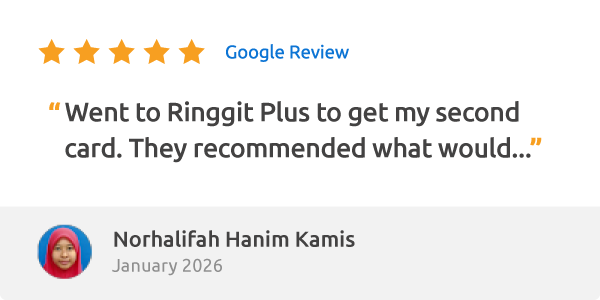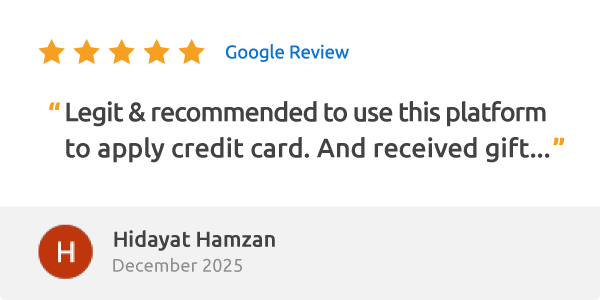What You Need To Know About Travel Insurance
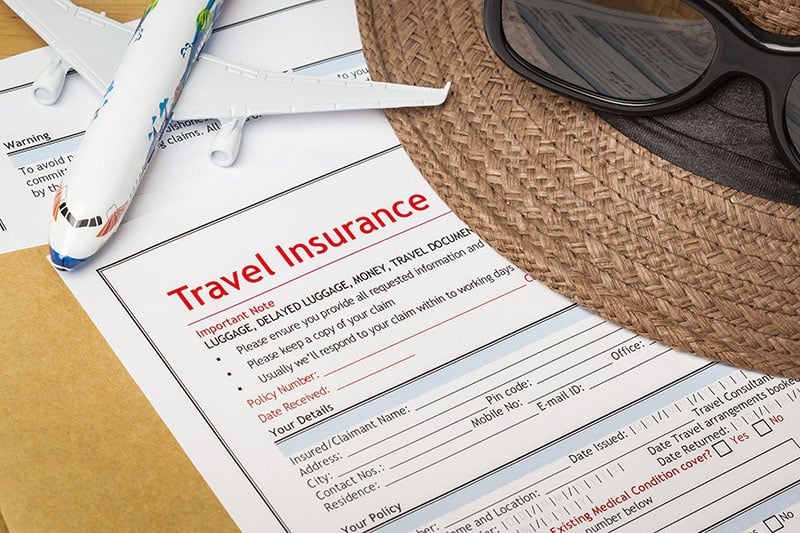
What Is Travel Insurance?
Booked your flight ticket and wondering if it is absolutely necessary to buy travel insurance? In most cases, your travels will go as planned without a glitch. However, we all know that even a well-planned trip can be ruined by factors not in our control, like a cancelled flight, lost luggage, or getting seriously ill in a foreign place. It’s bad enough that your plans are ruined, you’ll also end up having to literally pay for these misfortunes!
Travel insurance is an insurance policy that offers financial compensation from travel-related mishaps. These include everything from lost, damaged, or delayed luggage, to significant ones like emergency medical treatment abroad.
Best Travel Insurance Malaysia Offers:
- Allianz Travel Care Travel Insurance
- SOMPO Travel Plus Basic Travel Insurance
- SOMPO Travel Plus Elite Travel Insurance
- Zurich TravelPAC Silver Plan Travel Insurance
- Pacific Insurance Travel Pro Insurance Silver Travel Insurance
- AIG Student Assist Classic Travel Insurance
- AIG Student Assist Premier Travel Insurance
How Does Travel Insurance Work?
Buying a travel insurance policy means you pay a premium to the insurance company to be covered against specific events for a fixed time period (i.e. your travel period).
Travel insurance usually functions on a claims and reimbursement basis. You need to file a claim to the insurance company, which will then reimburse you for the amount you are covered for. To file a claim, you will have to submit proof of whichever event you are claiming for (delayed flights, lost luggage, medical treatment receipts, etc). The insurance company will then get it verified and reimburse you according to what your purchased travel insurance policy covers.
Travel insurance is designed to cover unforeseeable events. However, the timing of your travel insurance purchase is crucial.
Let’s say you’ve made plans to travel to a destination and made the necessary reservations and payments including travel insurance. Suddenly, an announcement is made that a tropical storm will hit your destination during your travel dates, resulting in flight cancellations and rendering all reservations and bookings you’ve made for the trip burned. But, since you bought travel insurance before the announcement of the storm, you will be covered for all costs of the holiday. If you bought travel insurance after the storm was announced, you won’t be covered for any storm-related losses whatsoever.
How Much Does Travel Insurance Cost?
Many people would think that travel insurance is expensive, or something to only buy when travelling to a country far from your home. However, the price of travel insurance isn’t as pricey as most people think, and really depends on several factors such as the coverage amount, duration, and destination. You can also opt for individual or family travel insurance plans.
Malaysia has a wide range of travel insurance policies with varying levels of coverage to cater to different types of travellers. As such, the prices for the premiums also have a large range, from as low as RM18.00 (Allianz Travel Care) for individual travel insurance and higher for family travel insurance, from RM110 (AIG Travel Guard Standard). There’s also an option for annual travel insurance policies which starts from RM288.00 (SOMPO Travel Plus Elite) and above.
Why Should I Get Travel Insurance?
Having travel insurance is like having a safety net to make sure that you’re covered financially if something goes wrong while you’re traveling. With travel insurance, you will receive financial compensation to help you for things like buying a new flight ticket, or for medical care overseas, which is usually costly. All things considered, travel insurance offers substantial benefits that outweigh the premiums you pay.

Travel insurance such as Lonpac Travel Secure Gold can reimburse you for your cancelled flight, as well as the costs to purchase new flight tickets, and even hotel rooms until the next available flight! Additionally, travel insurance not only protects but can also assist you wherever you are in the world. Etiqa TripCare 360 Gold, for example, provides Claims Assistance via its 24-Hour Travel and Medical Assistance Helpline.
It is important to note that the benefits covered by your travel insurance policy may vary by plan. So, be sure to choose a plan that fits your needs, budgets, travel plans and destinations. Do spend some time to read the fine print and coverage definitions (policy wording) until you understand what you are actually covered for.
How to Choose A Travel Insurance Plan?
The technical jargons found in insurance policies can be overwhelming and confusing, so here is a guide to help you understand some of the commonly used terms:
- 1. Duration of travel – Annual Plan or Single Trips
- 2. Destination – Domestic or Overseas
- 3. Number of Insured Persons – Individual or Family
- 4. Coverage & Exclusions – What is Covered and Not Covered?
#1. Duration of Travel – Single Trip vs. Annual Plan
What Is Single Trip Travel Insurance?
If you go on holiday once or twice in a year, single trip travel insurance policies would be the right option for you! Single trip travel insurance covers you per trip for the duration of your holiday. Insurance companies usually charge based on duration blocks, such as 1-5 days, 6-10 days and so forth up to a full 30 days. Some policies only last for 30 days at a time, while others can be extended with subsequent one-week blocks.
What’s great is that single trip travel insurance is the most affordable way to get financially protected. Just be sure to check that it offers enough coverage for your trip and belongings instead of opting for the cheapest one possible!
Would I Save More Money with An Annual Travel Insurance Plan?
Yes – you can save money on travel insurance if you are a serial traveller or have a job that requires you to travel constantly. Some annual insurance policies offer special rates if you are only buying for coverage to the same region. So instead of buying single trip travel insurance each time you book a holiday, annual travel insurance plans will allow you to enjoy protection for unlimited trips throughout the year.
#2. Destination – Domestic vs. Overseas
Is Overseas Travel Insurance Policies More Expensive?
Yes – the cost of travel insurance is highly dependent on where you are traveling to.
While Domestic Travel Insurance covers travel between both Peninsular and East Malaysia, International Travel Insurance has its coverage divided by regions. For example, Region A could include a selection of Asian countries while Region B considers all other countries worldwide. Naturally, premiums for coverage in Region B would be more expensive due to the distance.
However, it is important to note that not all countries worldwide will be covered. Insurers minimize risk by excluding coverage for countries that are currently experiencing civil war or any other forms of social instability.
#3. Number of Insured Persons – Family vs. Individual
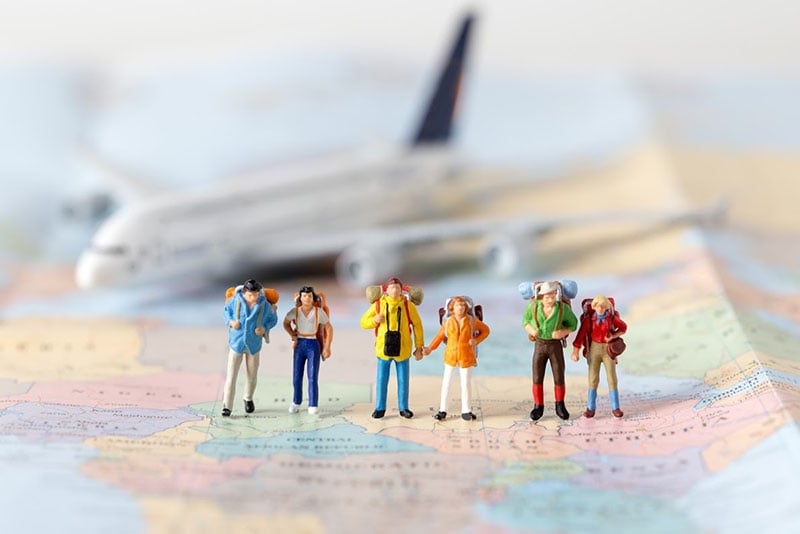
Are Family and Individual Packages Priced Differently?
Yes, the family package is usually significantly more expensive than the individual package – but is also significantly cheaper than buying individual policies for the whole family.
Unlike the Individual package where it offers coverage for only one person, the family package is designed to cover the insured person, his/her spouse, and/or their children. There is generally no limit as to how many children can be insured but there is a maximum coverage amount under the Family Package (Etiqa TripCare 360 Platinum).
Will My Parents and Immediate Family Members Be Covered too?
If you are planning a huge family trip, it is advisable for you to buy either a family package or multiple traveller package. Some travel insurance such as Pacific Insurance Travel Pro Insurance Silver also offer coverage for Senior Citizens aged 70 years old and above.
How About Students Who Travel to Study Abroad?
There are travel insurance plans designed specially for Malaysian students who study abroad. For example, AIG Student Assist Superior travel insurance offers comprehensive coverage for students who travel overseas to pursue their education. Other than basic coverage for personal accidents, medical and travel inconveniences, travel insurance for students offer pay-outs to cover the costs of education fees due to death or disability of an education sponsor.
A travel insurance plan designed for students provide at least an umbrella of coverage in case of an emergency and while waiting for their parents to help them out.
#4.Coverage & Exclusions
What Does Travel Insurance Cover?
1. Accidental Death or Total Permanent Disability
Accidents can and do happen while you’re on holiday and it is traumatic, especially when you are in a foreign country.
Example: John broke his leg while traveling and ended up paralyzed.
John has purchased travel insurance. Can he make a claim?
Yes. He should be eligible to receive a one-time lump sum payment for his disability as well as coverage for all his hospital fees. His travel insurance will also cover any hotel cancellations, additional flight bookings and other travel rearrangements.
John has returned to Malaysia. Will his travel insurance cover follow-up medical appointments?
Unfortunately, no. Due to the one-time lump sum payments he has received, his travel insurance might not cover the costs of these medical appointments in Malaysia. However, John will be able to make a medical insurance claim if he has purchased local medical insurance on top of his travel insurance.
What if John has both Travel Insurance and International Medical Insurance? Can he get paid twice for his disablement?
First and foremost, it is considered insurance fraud to receive insurance payment for the same item/event from more than one insurance policy. John will only be able to make claims from the first purchased insurance policy.
How Does Travel Medical Insurance Work?
Travel Medical Insurance is a sub-section of a travel insurance policy which covers only the medical expenses incurred in the event of any accidents or illnesses while traveling. It does not have coverage for lost luggage, flight cancellation or delays and other travel inconveniences which the other sections of a travel insurance policy would cover. Travel Medical Insurance is affordable but is rarely offered in Malaysia on its own.
Medical Expenses Arising from Accident or Illness
The probability of falling sick is higher when you are travelling due to differences in temperature, environment, food and water. If you get seriously sick or hurt in another country, your travel insurance will cover your medical bills. Furthermore, some travel companies also provide around the clock 24-hour telephone assistance. You could use this helpline to locate the nearest medical facility and more.
Do note that travel insurance policies usually function on reimbursement basis where it is a “pay first, claim after” policy. This means that you have to foot the medical bills first, then submit your claim to the insurance company once you return to Malaysia. However, some travel insurance offer cashless hospitalization, such as Etiqa TripCare 360 Takaful. Cashless hospitalization means that the insurer will provide guarantee letter with just one phone call to their hotline so that you can be admitted to hospital without having to fork out any payment from your own pocket. Every insurance policy is different, so do read your insurance policy terms carefully.
Emergency Medical Evacuation and Repatriation
In the event you get seriously sick or hurt overseas and you need to be taken via helicopter or other emergency transportation to the nearest hospital due to the lack of appropriate care and facilities – you’re looking at a very hefty medical bill. But if you purchase a travel insurance policy that has such coverage, the travel insurance will cover for this cost. However, it is important to read up on your insurance policy terms as in most cases, the insurer is to be contacted in advance and the insurer also reserves the right to decide on the hospital to which you shall be transported to.
Unplanned Travel Inconveniences

We all know how a delayed or missing luggage can ruin your holiday! If your checked-in luggage is missing for more than a day, you will need to buy extra clothes, toiletries and many more. That’s a lot more unexpected expenses you’ll need to fork out, and you most probably already have set these sum of money aside for tours and food instead!
Travel insurance is designed to financially cover all travel-related inconveniences like delayed / lost luggage and more, such as loss of travel documents, cash, credit cards, and even loss of deposit due to hotel cancellation or overbooking. Other than that, you will also be covered if you missed your flight or you need excess coverage in relation to your rental car (Allianz Travel Care).
Emergency Trip Cancellation (Pre-Departure)
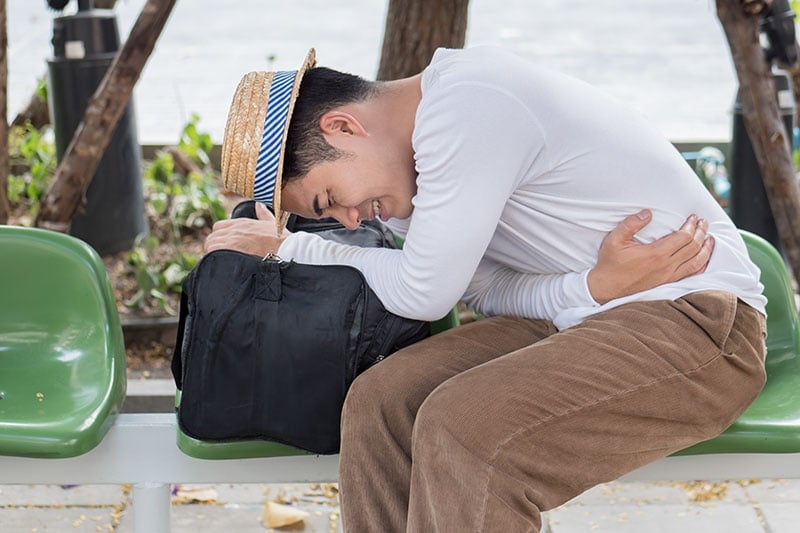
If you develop a nasty viral infection a day or two prior to your trip, it would mean that you have to cancel your trip. Not every travel insurance policy will cover pre-departure trip cancellations. For policies that cover such as AIG Travel Guard, they may require you to visit a doctor before cancelling the trip. If you happen to fall sick on the day of departure itself, you are required to visit the doctor not more than 72 hours after the cancellation. Insurance companies will always want to see proof that the insured person had exhausted all options prior to making the decision in cancelling the trip.
What Doesn’t Travel Insurance Cover?
There is always a list of exclusions that travel insurance will not have coverage for. We have highlighted some of the instances where you will most likely not be covered for by travel insurance:
- 1. Pre-Existing Medical Conditions
This is the most common exclusion you will find in most travel insurance policies. Simply, you will not be covered for any health problems you currently have. For example, if you have an existing heart problem and you go on a rock-climbing trip. In the unfortunate event that you experience a heart attack during the rock-climbing activity, any treatments you receive because of the heart attack will not be covered under the travel insurance.
- 2. Suicide or Self-Injury
Travel Insurance policies have no coverage for attempted suicide or intentional self-injury. Insurers have the right to not pay-out for hospital or medical bills due to the exclusion for care in the case of suicide or self-injury. On a serious note, there are various suicide prevention programs such as the Befrienders who are available and willing to hear you out and help you deal with the problems you have.
- 3. Involvement of Alcohol and Drugs
There will not be any reimbursement if any illness or injury is caused by alcohol and/or drugs consumption. In cases of drug abuse, the insurer reserves the right to not cover if it is found that drugs are not taken in accordance with treatment prescribed by a registered medical practitioner.
- 4. Sexually Transmitted Diseases (STDs)
If you have contracted a sexually transmitted disease directly or indirectly during your travel, the travel insurance provider will not provide pay-out for any medical bills that follow.
- 5. Pregnancy, Childbirth or Miscarriage
Most travel insurance provider will not cover for complications arising from pregnancy, childbirth or miscarriage. However, there are a few insurers that would reimburse in some instances like miscarriage treatment due to injury as a direct result of an accident.
- 6. Psychological Disorder
Mental and Emotional Disorders are not covered by most travel insurance. These disorders such as Bipolar Disorder is usually listed as one of the pre-existing medical conditions which makes it clear that there won’t be coverage.
- 7. Acts of War
This could be easily confused as acts of terrorism and hijacking, which are actually widely covered by travel insurance policies. What this exclusion really means is that the insurance provider will not cover for any losses caused by civil, political, or military unrest.
How To Make A Travel Insurance Claim?
Do remember that travel insurance policies almost always function on a reimbursement basis. To get compensated for your loss or damages, you will have to submit proof of your losses, then the insurance company will get it verified and reimburse you according to what your purchased travel insurance policy covers.
That said, you must make sure that you contact your travel insurance’s 24-hour hotline service as soon as the incident takes place.
How Do I Find the Right Travel Insurance Policy?
Travel insurance policies vary by plans. A great place to start is to focus on specific items which are important for your travels (apart from the standard coverage a travel insurance policy would provide). For example, if you are going to be renting a car for long road trips, you may want to consider buying a travel insurance plan that covers car rental excess charges so that you do not have to buy this cover separately.
Next, you can decide on how much premium you want to be paying. With a diverse range of policies available, you have room to select one that has the best balance between cost and coverage. So the cost of insuring your trip is entirely up to you.
To find and compare the best travel insurance plans available in Malaysia, you can check out our travel insurance page, where we have an extensive list of travel insurance policies available which is sorted by premium price. On top of that, we provide you with all the details you need to know and option to apply for travel insurance right away too!
Can I Cancel My Policy?
Insurers usually allow cancellation of the travel insurance at any time by giving them written notice. Termination will become effective on the date the notice is received or on the date specified in the notice, whichever is later. There usually won’t be any refunds, nonetheless it is subjected to the terms and conditions of the travel insurance.
Travel Insurance Glossary
Accident – A sudden unforeseen and fortuitous event.
Certificate of Insurance – A certificate, which is issued after the applicable premium have been paid.
Premium – Payment which shall be deemed proof of the insurance coverage provided under this policy.
Child/Children – Unemployed and unmarried person under the age of 18 years old or up to 23 years old, if he/she is studying full-time in a recognized institution of higher learning.
Common Carrier – Any licensed registered public transportation services for people who travel as fare paying passengers in vehicles as listed below:
a) Airport limousine, bus, coach, taxi, ferry, hovercraft, hydrofoil, ship, train, tram or underground train; and
b) Any certified fixed-wing aircraft operated by a licensed airline or Chartered Flights and helicopters operating only between established and recognized commercial airports or licensed commercial heliports.
Epidemic – Any contagious disease outbreak which is classified by the World Health Organization (WHO) or Malaysia’s Ministry of Health.
Family – This refers to You, Your legal spouse and any number of Your legal Children insured under the same Certificate of Insurance.
Hijack – Any unlawful violence and control of a public transportation from the regular crew.
Home Contents – All belongings, household fittings and fixtures you, your family and your domestic helper who is permanently residing with you own (not your landlord’s). This exclude deeds, bonds, bills of exchange, promissory notes, cheques, travellers’ cheques, securities for money, documents of any kind, cash, currency notes.
Illness – This refers to the event when you get sick while traveling and shall exclude any Pre-Existing Medical Condition.
Immediate Family Member – This refers to Your spouse, Child, son-in-law, daughter-in-law, parent, parent-in-law, grandparent, grandparent-in-law, grandchild, brother, sister, brother-in-law, sister-in-law.
Injury – This is when you got yourself injured because of an Accident, excluding any Illness or Medical Disorder.
Loss of Limb – Severe physical loss of a hand at or above the wrist or a foot at or above the ankle.
Loss of Sight – Total and irreversible loss of sight.
Medical Practitioner – A qualified, licensed and registered western medical practitioner who practice within the scope of his/her licensing and training in the geographical area of practice.
Mountain Sickness – This refers to an event also known as Acute Mountain Sickness (AMS), altitude Illness, hypobaropathy or soroche which is a pathological effect of high altitude on humans, caused by acute exposure to low partial pressure of oxygen at high altitude.
Natural Disaster – This refers to an event which is due to natural causes and that has catastrophic consequences.
Overseas – Destination outside of Malaysia.
Overseas Travel – Travel either for leisure or business purpose to any destination outside of Malaysia.
Period of Insurance – Period specified in the Certificate of Insurance.
Permanent Total Disablement – Injury which lasted continuously for 12 calendar months from the date of Accident, in which entirely prevents employment or any hope of recovery.
Pre-Existing Medical Condition – Existing condition where you have received medical treatment within 12 months prior to the effective date of your travel insurance policy.
Serious Injury or Serious Illness – This refers to when you require medical treatment in the hospital and certified by a Medical Practitioner as unfit to travel or continue with your planned trip.
Trip – The journey once you leave your house or office (whichever is later) to the airport in Malaysia for your flight to your intended destination. Remember to start your journey not more than 24 hours prior to booked departure time and that the trip ends on whichever of the following that occurs first
- The expiry of the Period of Insurance specified in the Certificate of Insurance;
- Return to your home or office (whichever is earlier) in Malaysia; or
- 24 hours after arrival in Malaysia
Travel Agent – Licensed and registered travel agent in Malaysia with the relevant authorities.
We/Our/Us/Insurer – this refers to the travel insurance company.
You/Your/Insured Person – this refers to the Insured Person(s) shown in the Certificate of Insurance.
Hopefully, this article helped you learn more about travel insurance and in finding the best travel insurance in Malaysia.



















